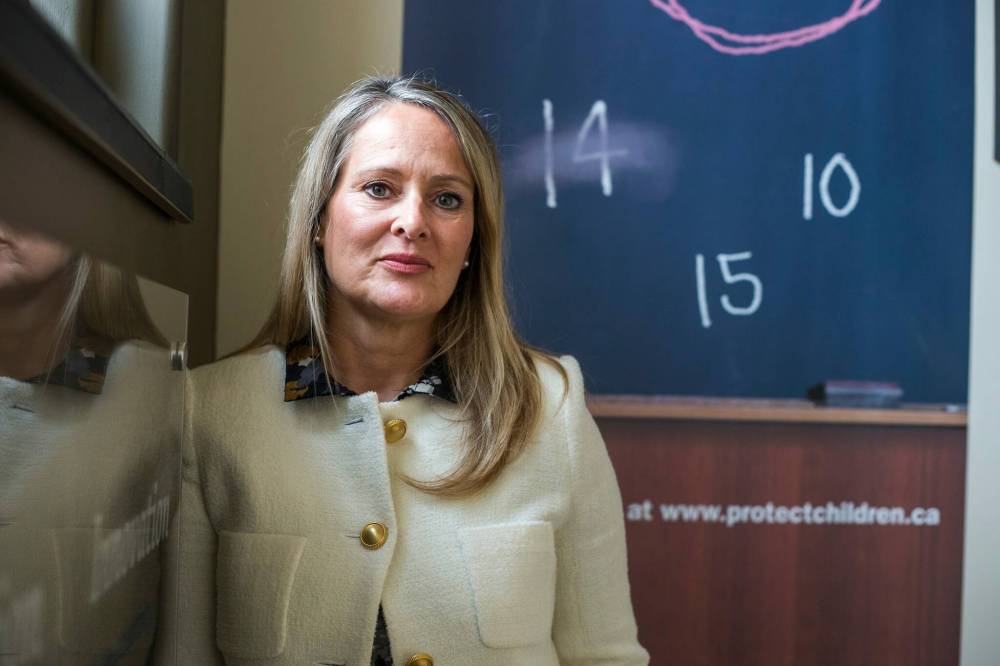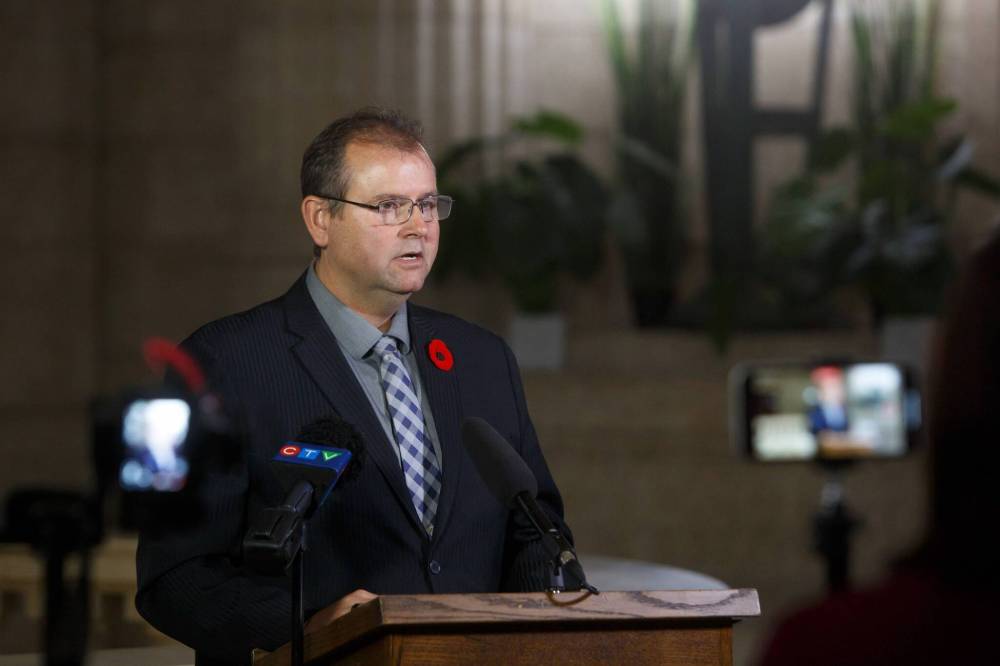Top marks for Manitoba’s new approach to probing teacher misconduct
Advertisement
Read this article for free:
or
Already have an account? Log in here »
To continue reading, please subscribe:
Monthly Digital Subscription
$0 for the first 4 weeks*
- Enjoy unlimited reading on winnipegfreepress.com
- Read the E-Edition, our digital replica newspaper
- Access News Break, our award-winning app
- Play interactive puzzles
*No charge for 4 weeks then price increases to the regular rate of $19.00 plus GST every four weeks. Offer available to new and qualified returning subscribers only. Cancel any time.
Monthly Digital Subscription
$4.75/week*
- Enjoy unlimited reading on winnipegfreepress.com
- Read the E-Edition, our digital replica newspaper
- Access News Break, our award-winning app
- Play interactive puzzles
*Billed as $19 plus GST every four weeks. Cancel any time.
To continue reading, please subscribe:
Add Free Press access to your Brandon Sun subscription for only an additional
$1 for the first 4 weeks*
*Your next subscription payment will increase by $1.00 and you will be charged $16.99 plus GST for four weeks. After four weeks, your payment will increase to $23.99 plus GST every four weeks.
Read unlimited articles for free today:
or
Already have an account? Log in here »
Hey there, time traveller!
This article was published 15/11/2022 (1118 days ago), so information in it may no longer be current.
Child protection advocates have praised the Manitoba government’s commitment to creating a teacher registry and an independent body that handles teacher misconduct, calling it a “big win” for child safety and a “precedent-setting” decision.
“We just think this is great news,” said Noni Classen, director of education at the Canadian Centre for Child Protection, based in Winnipeg. “It actually — with the independent body — will be precedent-setting for Canada.”
The announcement, made Tuesday in the throne speech, comes on the heels of a months-long Free Press investigation into secrecy surrounding teacher misconduct in Manitoba, prompting calls for the province to create such a registry and an independent body. A damning nation-wide report on educator abuse, which was released two weeks ago by the centre, amplified the need for better protection, singling-out Manitoba’s discipline processes as especially secretive. The report highlighted the case of former Winnipeg high school football coach Kelsey McKay, who faces 30 charges of sexual exploitation-related offences involving former players.

MIKAELA MACKENZIE / WINNIPEG FREE PRESS FILES
“It actually — with the independent body — will be precedent-setting for Canada,” said Noni Classen, with the Canadian Centre for Child Protection.
Ottawa-based Peter Hamer, co-founder of Stop Educator Child Exploitation, called the announcement “a huge win” for survivors of educator sexual abuse.
“It was actually a little emotional for me when I read it today,” said Hamer, who is a survivor of teacher abuse. “It’s so, so deeply personal with everyone in our organization.”
Hamer said such steps toward transparency better protect students. For instance, making teacher discipline public can stop schools from hiding teacher abuse by shuffling teachers to other schools — something that happened with the teacher in his case, he said.
Manitoba may become the “benchmark” for misconduct transparency and child protection, Hamer said, as no other province has an independent body to investigate and adjudicate allegations of teacher wrongdoing.
Still, “it’s long overdue,” he said.
The education minister agrees.
“These are things that should have been done a long time ago,” said Education Minister Wayne Ewasko, who is also a teacher. He said the province’s commitment will make Manitoba a “leader” in child safety.
For at least a year, the province has been openly mulling the idea of a teacher registry. Ewasko said two weeks ago the province was looking to increase transparency. In 2020, Manitoba’s K-12 review commission recommended the province create a college of educators to certify teachers.
Currently, teacher misconduct is investigated by several groups. Schools and school boards probe some cases, the Manitoba Teachers’ Society, which is a union, investigates some and the education department investigates others. This results in an incomplete picture of how often teachers abuse students in Manitoba. Critics say it’s a conflict of interest for the teachers union to discipline their own members.
Ewasko said the new system will streamline the investigation process and “smooth out” conflict of interest issues, though he left the door open for the teachers union to investigate cases in tandem.
“MTS may choose to continue their practise,” he said.

MIKE DEAL / WINNIPEG FREE PRESS FILES
Minister of Education and Early Childhood Learning Wayne Ewasko said the new system will streamline the investigation process and “smooth out” conflict of interest issues, though he left the door open for the teachers union to investigate cases in tandem.
In a statement, MTS president James Bedford said the union is consulting with the department and “sharing our concerns and positions about the definition of misconduct, structure and composition of an independent body, due processes for managing misconduct, protecting privacy rights, and balancing public transparency.”
Cameron Hauseman, an assistant professor of educational administration at the University of Manitoba, said he expects “major pushback” from the union.
“This is a key part of their mandate that’s being stripped away,” he said.
Ewasko said the independent body will not include members of government, the teachers union and possibly employers. The registry will be public and will include a list of all active teachers and information about the status of their licence.
Ewasko couldn’t promise to making public details of charges of professional misconduct and findings of guilt, a step taken by other provinces with registries, such as Ontario.
The changes require legislative changes, which are expected to be introduced in the coming months, Ewasko said.
— With files from Carol Sanders and Danielle Da Silva
katrina.clarke@freepress.mb.ca

Katrina Clarke is an investigative reporter with the Winnipeg Free Press.
Our newsroom depends on a growing audience of readers to power our journalism. If you are not a paid reader, please consider becoming a subscriber.
Our newsroom depends on its audience of readers to power our journalism. Thank you for your support.
History
Updated on Wednesday, November 16, 2022 7:24 AM CST: Corrects typo






